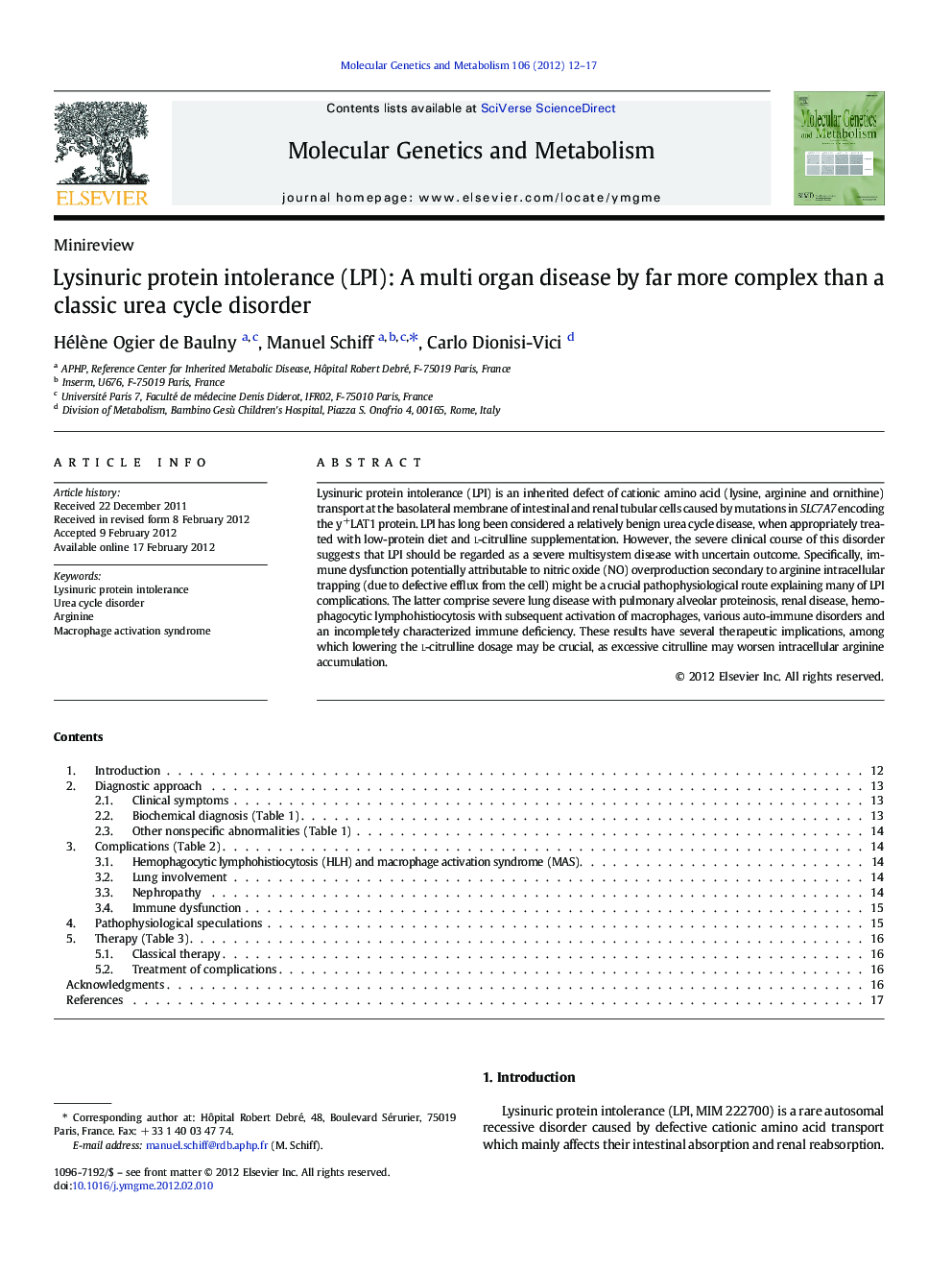| Article ID | Journal | Published Year | Pages | File Type |
|---|---|---|---|---|
| 1998513 | Molecular Genetics and Metabolism | 2012 | 6 Pages |
Lysinuric protein intolerance (LPI) is an inherited defect of cationic amino acid (lysine, arginine and ornithine) transport at the basolateral membrane of intestinal and renal tubular cells caused by mutations in SLC7A7 encoding the y+LAT1 protein. LPI has long been considered a relatively benign urea cycle disease, when appropriately treated with low-protein diet and l-citrulline supplementation. However, the severe clinical course of this disorder suggests that LPI should be regarded as a severe multisystem disease with uncertain outcome. Specifically, immune dysfunction potentially attributable to nitric oxide (NO) overproduction secondary to arginine intracellular trapping (due to defective efflux from the cell) might be a crucial pathophysiological route explaining many of LPI complications. The latter comprise severe lung disease with pulmonary alveolar proteinosis, renal disease, hemophagocytic lymphohistiocytosis with subsequent activation of macrophages, various auto-immune disorders and an incompletely characterized immune deficiency. These results have several therapeutic implications, among which lowering the l-citrulline dosage may be crucial, as excessive citrulline may worsen intracellular arginine accumulation.
► LPI is a severe multisystem disease with uncertain outcome. ► Intracellular arginine accumulation is related to its defective cellular efflux. ► NO overproduction is secondary to intracellular arginine trapping. ► It might be a crucial pathophysiological route explaining many of LPI complications. ► Lowering L-citrulline dosage is thus essential not to worsen intracellular arginine.
